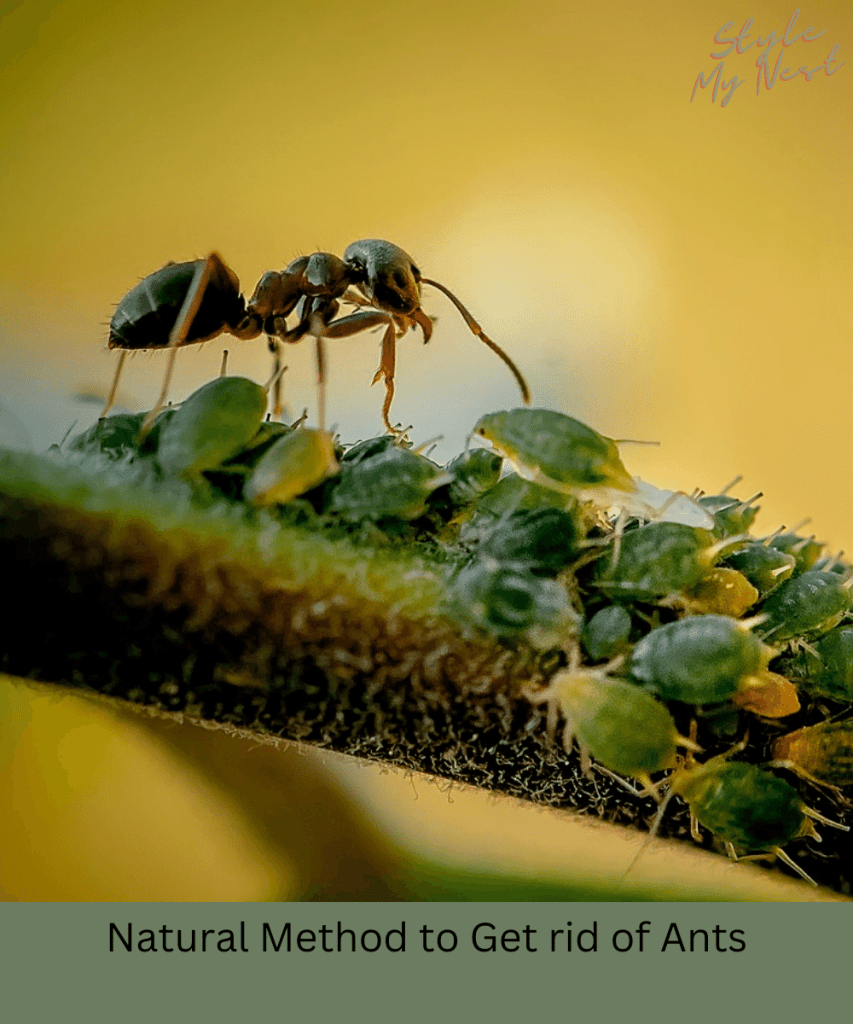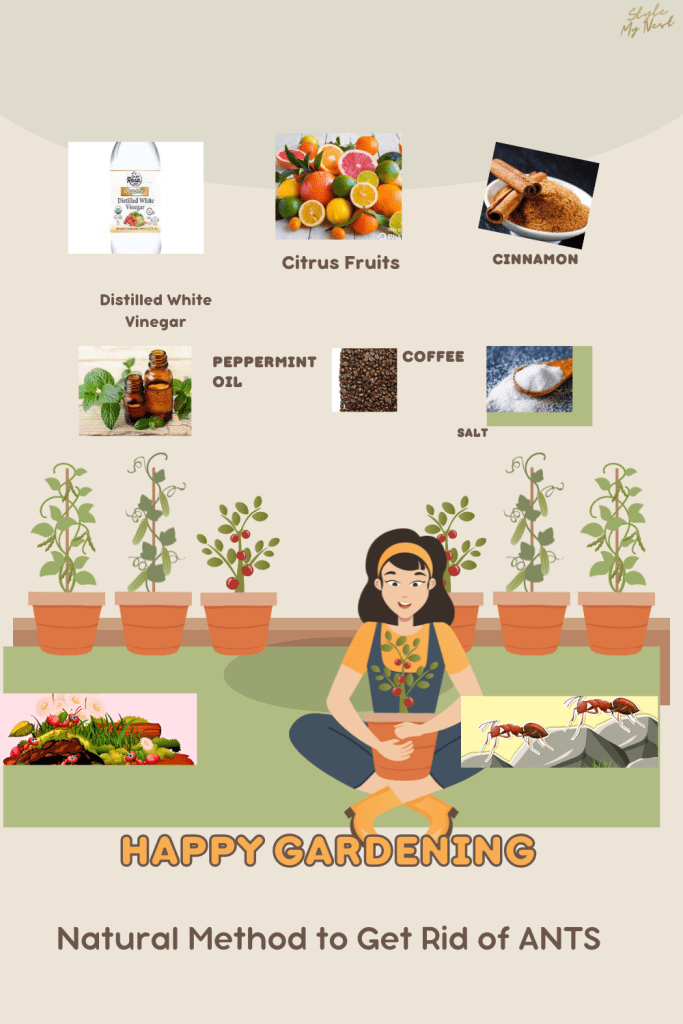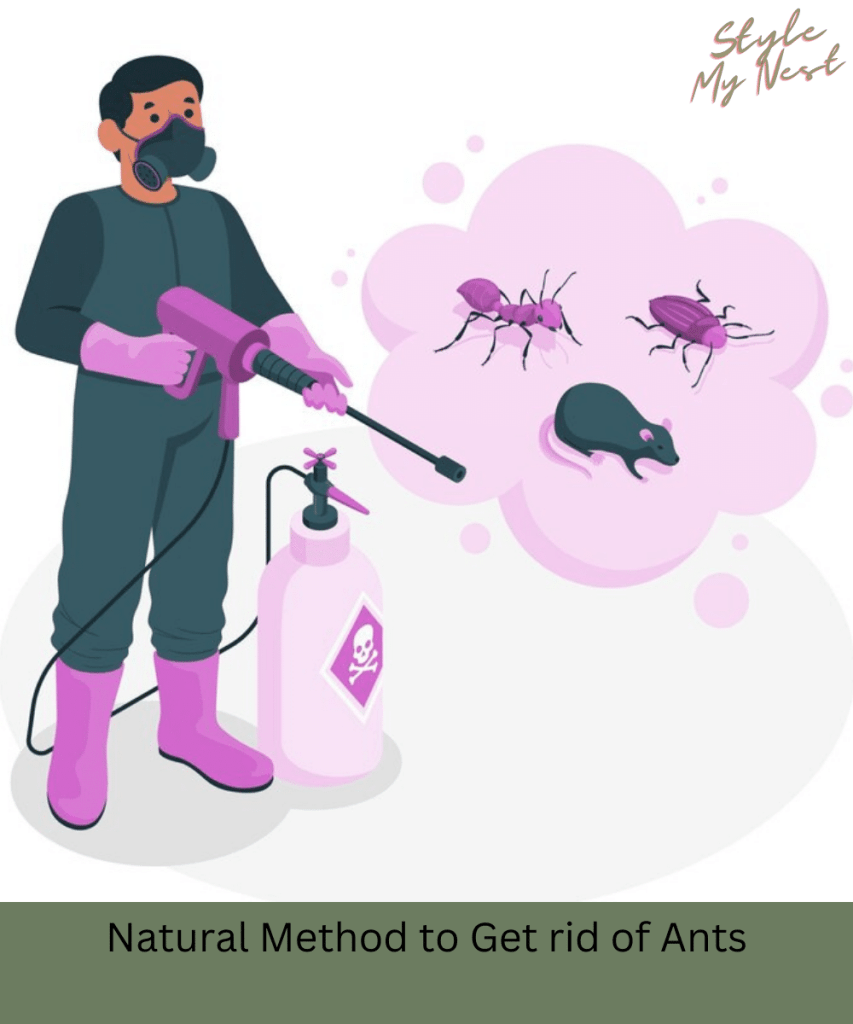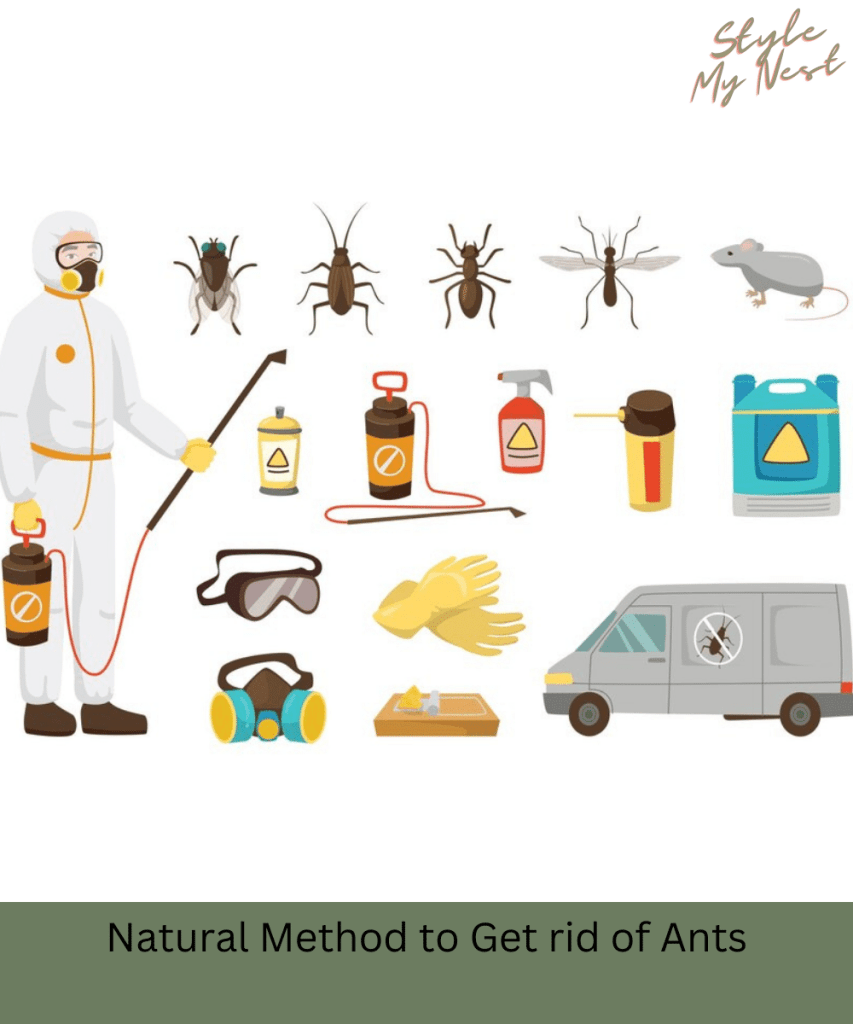Ants may be tiny, but they can cause big trouble in your garden. Picture this: you’re about to enjoy your bumper crop when you find an army of ants eating your plants. However, before resorting to chemical pesticides, consider the Natural Method to Get Rid of Ants.
My initial interaction with the small intruders was disconcerting. Finding ants crawling over my favorite flowers and plants made me decide to do something. Right then and there, I made up my mind to deal with this problem directly, using only natural remedies and a healthy dose of hope.
This story isn’t just about getting rid of ants; it’s also about eco-friendly farming techniques that any gardener can use.
Been there, done that! Let me show you how I organically destroyed ants and restored calm in my garden oasis.

Understanding Ants and Their Behavior
Ants are fascinating creatures with a knack for teamwork. An important first step was realizing ants’ function in the environment. These tiny workers are not just pests but pollinators and composers, contributing to the garden’s health.
However, when their numbers increase, they may pose a threat. After reading about their helpful characteristics, I still don’t particularly enjoy having them in my garden, but it motivated me to look for more balanced solutions. They live in well-organized colonies and communicate through pheromones.
Various species of ants, such as sugar ants and carpenter ants, have the potential to cause damage in your garden through food gathering and nest construction.
Naturally, Eliminate Ant Infestations in Your Garden and Home
To efficiently eliminate ants from your living area, identify the source of attraction that draws them inside. By closely following their trail, you can find any possible food or water sources drawing them in. Whether it’s a sticky honey residue or a misplaced spoon under the sink, get rid of the attractants immediately.
Don’t leave food on surfaces that can get wet; put any leftovers in containers with lids or the fridge. Removing the ant draw may be enough for the ants to move independently.

But if they don’t go away, you should look into these all-natural solutions.
Distilled White Vinegar
Combining white vinegar and water is a commonly used technique for eliminating ants. The pungent smell of vinegar repels and can even kill the insects. If you can handle the smell, mix one part vinegar with three parts water. For a more robust option, use 100% vinegar or a 50/50 mix of vinegar and water in a spray bottle.
Spray this mixture in areas where ants are present, focusing on entry points like window sills, backdoors, and baseboards. If you clean areas with this solution regularly, it will keep ants away.
Citrus Fruits
Ants dislike the scent of citrus fruits such as lemons, limes, and oranges, making them a natural repellent. To keep ants away without hurting them, scatter the peels of these fruits around entryways.
Cinnamon
Studies on cinnamon suggest that it contains substances that deter and eliminate ants. Applying powdered cinnamon near entryways or using cotton balls with cinnamon oil can efficiently repel ants.
Salt
Ants won’t be able to get into your home if you put down table salt near entry places. A saline solution can dehydrate ants and aid in their elimination.
Peppermint Oil
Peppermint oil is well-known for its ability to repel insects, particularly ants. To avoid pests, use this essential oil for homemade cleaning solutions or spray doorways, window sills, and baseboards.
Cayenne or Black Pepper
Ants hate the pungent odor that raw pepper has thus it works as a deterrent. Apply pepper in locations where ants enter your home or mix water and pepper to eliminate them.
Homemade Ant Traps and Baits
Whip up a sugar and borax ant bait or set up a DIY ant trap with borax and honey. Patience is vital when using homemade ant remedies. Trust me, the satisfaction of seeing those ants disappear is worth the wait!
Coffee
Studies have shown that ground coffee is a good repellent for ants. Researchers have noted that specific types, such as
Identifying Ant Infestations in Your Garden
Knowing how to spot the signs of an ant problem is important. Keep an eye out for damaged plants, dirt mounds, and ant trails. Understanding ants’ origin and entry points is crucial for devising a practical approach.
The Benefits of Natural Pest Control Methods
Choosing natural pest control solutions is advantageous for all involved. In addition to safeguarding the environment from detrimental pesticides, you promote a more robust garden ecosystem. Moreover, natural remedies are considered safe for children, pets, and beneficial insects.
Organic Practices to Prevent Ants in Your Garden
Stay on top of your garden game with proper maintenance. Mulching helps deter ants, while strategic watering keeps them from nesting. Remember, a little effort goes a long way in keeping ants at bay.
Encouraging Natural Ant Predators
Attention all insectivores! Ladybugs, lacewings, and insectivorous birds play a crucial role in maintaining the health of your garden. Introduce these advantageous insects to your yard to consume ants and uphold a natural equilibrium.
Natural Methods I Tried

The journey through various natural remedies was both enlightening and somewhat experimental. Boiling water proved effective but felt too brutal against the backdrop of my thriving garden. Diatomaceous Earth, made up of ancient algae, became popular because it keeps ants out without being harmful. Both the vinegar solution (which needs to be used regularly) and the citrus peel brew (which smells great) added to my natural collection of ant-killing substances.
Consistency and Persistence in Natural Ant Control
Consistency and persistence are crucial factors in natural ant control. Consistency plays a vital role in combating ants. Regular monitoring and maintenance are essential for long-term pest prevention. Stay committed to natural ant control methods, and your garden will repay you for a healthy, pest-free environment.
Concluding my experience with battling ants, I encourage you to start your own quest for a garden free of pests. Adopt natural pest control techniques, practice patience, and observe your garden thrive. Collaboratively, we have the potential to establish a balanced environment where plants flourish, pests are deterred, and nature prevails. Enjoy your gardening!
Success Stories: Triumphs in the Garden
Not all attempts were victorious, but those that succeeded did so with flying colors. The citrus peel concoction was a revelation, deterring ants while leaving a fresh scent that seemed to invigorate my plants. Diatomaceous Earth stood out for its ease of use and effectiveness, safeguarding my garden without harming its inhabitants.
Preventative Measures: Fortifying My Garden
Eradicating ants was only part of the battle. Preventing their return involved cultivating practices that promoted a healthy, balanced garden ecosystem. Regular cleanup, strategic planting of ant-repellent flora, and vigilant monitoring became part of my gardening routine. These practices didn’t just deter ants; they enriched my garden in myriad ways.
When to Seek Professional Help

Even the most diligent gardener can face overwhelming challenges. Recognizing when to call in experts was a humbling experience that taught me the value of professional insight in maintaining the natural integrity of my garden. Choosing specialists who respected my commitment to natural solutions was crucial for addressing severe infestations without compromising my principles.
A Garden Reclaimed
Reflecting on this journey, the most significant outcome wasn’t just an ant-free garden; it was a deeper understanding and appreciation of nature’s intricacies. My garden became a testament to the effectiveness of natural pest control methods, thriving more beautifully and vibrantly than ever before.